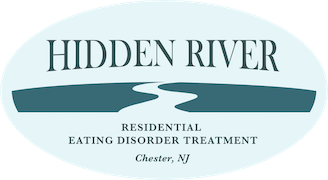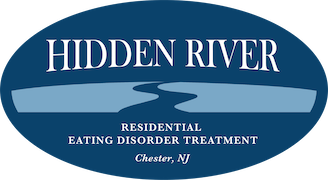Why Focusing on Nutrition is Crucial for Eating Disorder Recovery
Food and eating play a major role in the general public’s understanding of eating disorders – and indeed, eating behaviors are one of the most crucial factors when someone is recovering from their eating disorder. However, most people don’t think of nutrition as the driver of recovery. Instead, they focus on adapting food choices and eating behaviors alone without giving the patient a firm understanding of why proper nutrition is so vital.
While there are many dimensions that come with eating disorder recovery, a focus on nutrition – particularly how to eat consistently throughout the day, prepare balanced and structured meals, and portion meals according to one’s individual needs – can be a significant driver behind eating disorder recovery.
The physical impact of eating disorders
For individuals facing eating disorders, there tends to be a significant risk of declines in physical health. According to Westmoreland and Mehler (2016), those with severe and enduring eating disorders often show cyclical weight restoration during or after treatment followed by recurrent weight loss with the return of symptomatology (1). They go on to describe that starvation or purging behaviors can lead to what’s perceived as positive sensations, like the reduction of anxiety or obsessions, which can positively enforce these behaviors, often to the detriment of the individual (1). Caloric deprivation, which can lead to significant weight loss, can then lead to malnutrition, which ultimately results in a wide range of medical complications.
The physical impacts of eating disorders can be life-altering, with secondary medical conditions compounding the distress. Eating disorder patients can learn to nourish their bodies in a sustainable way through the use of nutritional rehabilitation and the support of a registered dietitian. By addressing malnutrition through nutritional rehabilitation, eating disorder specialists can help individuals return to a healthy weight while internalizing the importance of nourishment.
What to gain from focusing on nutrition when recovering from an eating disorder
A literature review published in BMC Psychiatry looked at studies from a time period of over 50 years, concluding that “restoration of weight and nutritional status are key elements in the treatment of anorexia nervosa” (2). The authors posit that treatment could include dietary plans that incorporate slow eating and expanding the range of foods eaten (2). By offering nutritional rehabilitation programs, eating disorder specialists can help those striving for recovery to restore their weight. It also builds protective factors from the aforementioned weight cycling or consistent patterns of weight gain and loss.
As stated by Westmoreland and Mehler, modern medicine is so good that it has the power to reverse the damage done to the body from eating disorders (1). However, early intervention is key.
Nutrition care at Hidden River
Hidden River offers its patients nutritional rehabilitation through their nutritional care program. This program focuses on building a sustainable foundation for patients to continue their recovery post-discharge from the residential level of care. Over a span of eight weeks, patients will be provided with evidence-based education rooted in a gentle nutrition paradigm and taught by certified, experienced registered dietitians. The program highlights the importance of creating well-balanced eating habits that use each of the five food groups. It emphasizes variety and structure and denounces fad dieting and restrictive eating patterns that can leave patients struggling with feelings of guilt and shame. This “all foods fit” approach promotes optimal energy and nutrient intake while making room for one’s favorite foods.
Additionally, patients will gain hands-on experience, such as meal planning, cooking, grocery shopping, and portioning, which will not only help them recover from their eating disorders but also serve as basic skills that they will utilize for the rest of their lives. In fact, providing patients with these types of exposures during their recovery gives them an opportunity to engage with food in a comfortable, structured way, allowing them to build a healthier relationship with food and eating. Patients who complete the program often express that they feel more confident in their food choices and capabilities in the kitchen as well as more comfortable talking about food and nutrition with others. This outcome can have lasting impacts on their recovery.
To learn more about Hidden River, visit our website or contact us at info@hiddenriverhealing.com.





